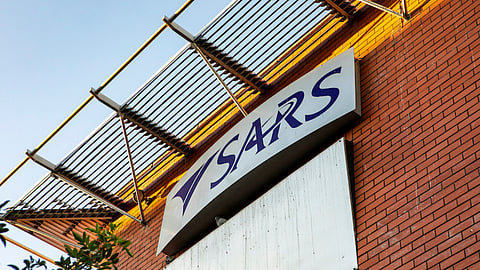Litigating against SARS: Data says you have a 20% chance of success
In its recent revenue announcement, the South African Revenue Service (SARS) disclosed a surplus of R10 billion alongside R1.741 trillion in total tax collections for the 2023/24 fiscal year, attributing the success to rigorous compliance efforts. With an 84% litigation success rate, SARS consistently prevails in tax disputes, underscoring the risks for taxpayers pursuing court action. Despite high-profile cases, the reality of time, expense, and potential legislative amendments underscores the uphill battle faced by taxpayers against SARS.
Sign up for your early morning brew of the BizNews Insider to keep you up to speed with the content that matters. The newsletter will land in your inbox at 5:30am weekdays. Register here.
By Bernard Mofokeng: Tax Controversy Leader, Deloitte Africa
In the recent revenue announcement, made by the South African Revenue Service (SARS) on 2 April 2024, announcing preliminary revenue collection outcome for 2023/24 fiscal year, SARS announced that its total tax collections were R1.741 trillion with an unexpected surplus of R10 billion. Some of the main reasons for this better-than-expected tax collections was accredited to its compliance efforts. As part of its compliance efforts, SARS has a litigation strategy that seeks to provide certainty and clarity for taxpayers through the courts on tax and customs laws and when justifiable, to make non-compliance hard and costly. This strategy has been implemented over several years and is continually producing better results, each fiscal year.
According to SARS, in this fiscal year, 110 judgments were handed down in which SARS was successful in 94 cases – resulting in an 84% litigation success rate. On the face of it, this means that SARS wins 8 out of 10 times against taxpayers when a tax case is decided by a court. This high success rate has been the trend for the past few years. This is something that taxpayers must take into account when deciding if to proceed. Based on SARS' current success rate, taking SARS to court is risky for taxpayers in many respects.
In recent years, South Africa has become a very litigious country with court cases reported daily. However, the public are sometimes not aware of the litigation strategy of the parties involved, the amount of time spent on those cases, opportunities lost and the financial costs thereof. For taxpayers to finally litigate, and their cases to be heard in the courts against SARS, it normally means that all the internal remedies available to a taxpayer have been exhausted. Practically, it means the dispute resolution (DR) process provided in the Tax Administration Act of 2011 (TAA) has been exhausted. A taxpayer would have spent thousands of Rands during the DR process and if the case is eventually heard by the Tax Court, the judgment of the Tax Court is appealed to the High Courts, the judgment of the of the High Court is appealed to the Supreme Court of Appeal (SCA), and in some few cases, the judgment of the SCA is appealed to the Constitutional Court – the costs thereof can run into millions of Rands. Years will be spent on the case without any certainty on how to apply the relevant tax laws which would, in almost all cases, have resulted in lost business opportunities for most taxpayers.
However, what the 84% litigation success rate does not tell you is that the number of judgments handed down constitute a very small number of disputed cases lodged against SARS by taxpayers. As was the case in the past, we hope that SARS will provide us with a full analysis of disputed tax cases in their annual report later in the year for the 2023/24 fiscal year. The SARS annual report provides a useful analysis of the tax and customs disputes handled by SARS for taxpayers and their advisors. In its annual reports, SARS provides a breakdown per fiscal year of the tax disputes handled and finalised within the internal review process, as part of the DR process. For the 2022/23 fiscal year, SARS received 161 115 objections (first step in tax dispute process). Just over 21 900 of the objections were disallowed and only 10 285 were referred to be litigated on by taxpayers in the Tax Board and Tax Court. Of the 10 285 cases to be litigated, approximately 7 644 were finalised with SARS or taxpayer conceding or withdrawing or settling the cases. This was similar in many respects for fiscal year 2021/22. We expect a similar trend for the 2023/24 fiscal year.
Based on the above statistics on tax disputes for fiscal year 2021/22 and 2022/23, it is clear that the DR process plays a crucial part in resolving tax disputes and taxpayers should fully utilise this process and not rush in litigating in the courts against SARS, when, for now at least, seems to favour SARS. Even with ultimate success in the courts by the taxpayers, they may have lost the war considering the time, money and opportunities lost and that SARS (and the National Treasury) may ultimately decide to amend the provisions in the tax legislation that was an issue in dispute in the courts.
Taxpayers must always remember that they are underdogs when they are litigating tax cases against SARS. There are 8 out of 10 chances that Goliath, not David, will be the victor in any tax dispute that is ultimately decided by a court of law. In simple terms, counsel should probably advise taxpayers of at least a 20% success rate when they are litigating against SARS in a tax dispute in court.
Read also:

